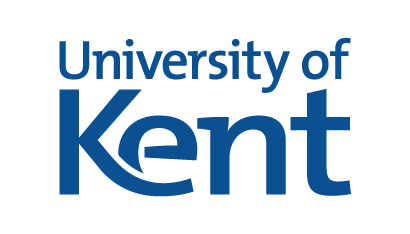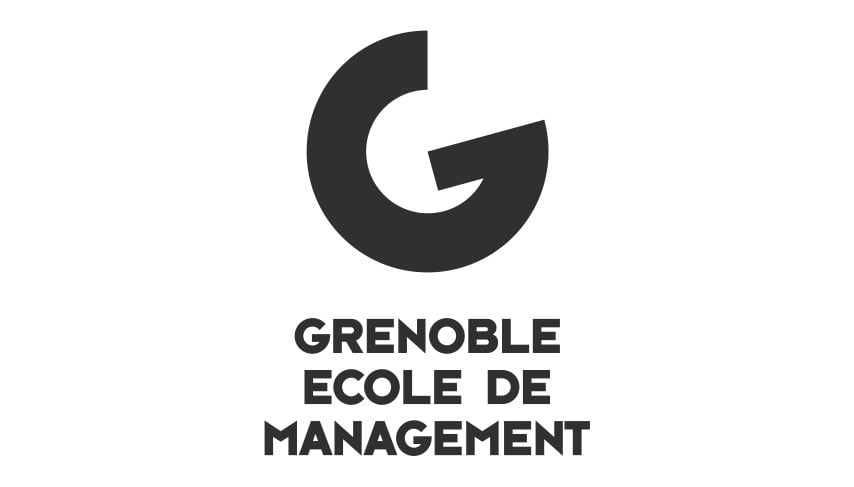How to get a job in journalism
Journalism has a reputation for being a competitive field. These days, however, there are more avenues open to aspiring journalists than ever before. Discover how to get that coveted journalism job, the difference between hard-hitting news reporters and lifestyle journalists, and the best journalism courses to advance your career.

For this piece on getting into journalism, we got expert insight from writer Alice Barnes-Brown and former BBC News correspondent Simon Hall, who now teaches journalism at the University of Cambridge.
What is a journalist?
Journalists provide the public with information — be that breaking news or the discussion of wide-ranging subjects including entertainment, politics, sport and culture.
Journalists also have the power to influence public opinion by giving their own views — be that in a regular column or as a talking head on a panel show.
The journalism sector has changed significantly since the days of print newspapers and Fleet Street — it’s open to more people from different backgrounds than ever before, and in many cases, you no longer need a degree to enjoy a long and rewarding career in the media.
Jobs in journalism takes many forms — print, online articles, multimedia, podcasts and social media. Even “traditional” reporters (working for newspapers, TV or radio) see the value in using platforms such as TikTok to reach a new audience and get younger minds engaging with socio-political issues.
What are the different types of journalism jobs?
Hard news vs. soft news
The broad field of journalism can be roughly divided into two types: “hard news” and “soft news.” Hard news reporters deal with breaking stories, often working all hours to make sure that they’re present to witness and report each new development. They cover topics that are timely and consequential, such as politics, business news and international affairs.
“Soft news” tends to address the stories that develop more slowly and, while entertaining or informative, are less likely to have a significant impact on our day-to-day lives. That’s not to say that they’re not important — culture, arts and sports journalism defines what makes us human and is a crucial respite from endless news cycles. A “soft news” journalism job can help you to maintain a healthier work-life balance, as you don’t constantly have to be on call or tracking fast-developing stories.
Travel writing is one form of this type of journalism job. Travel journalists typically write for newspaper travel sections and travel magazines, as well as their digital counterparts, providing escapist content that inspires readers to take a trip abroad or to open their mind to other cultures.
“What I love about travel writing is the experience of learning something new every day and sating my curiosity for the world, all the cultures that make it up, the history, the stories — discovering differences as well as similarities.” says Alice Barnes-Brown.
“But most of all, it’s reading about cool places that I can add to my bucket list and eventually experience for myself.”
Travel journalism isn’t for everyone; it’s best suited to those who can tolerate an itinerant lifestyle and unpredictable income. But for those who can, it has its perks — not least, free travel.
“The press trips are a bonus, as is the fact that nothing we write is do-or-die — it’s just nice things that people can read, and feel inspired as a result of reading it,” says Barnes-Brown.
“It’s not like news journalism, which — in my experience — can be quite harrowing!”
Different media formats
Jobs in journalism today involve much more than just print media. Many newspapers and magazines are still going strong, and still need talented reporters on staff — but you’ll increase your chances of success if you broaden your definition of what it means to be a journalist.
Most newspapers and magazines now have online outlets with many online-exclusive article, as the format allows for many more “column inches” than print. In fact, many well-respected outlets started life online and have no print equivalent — Rappler, the Philippine news website for which founder Maria Ressa won the Nobel Peace Prize in 2021, started life as a Facebook page.
Broadcast journalists are the rock stars of the journalism world. BBC news journalists, for instance, break important stories and grill politicians. But they don’t just work in news and television — many online outlets now rely on videos and podcasts to reach a wider audience.
If you have a talent for photography, you can become a photojournalist. Photojournalists are highly sought-after by publications, as it means that they don’t have to pay two people to go out and cover a story — that said, photojournalism typically commands higher fees than journalism alone.


Do I need a degree to get into journalism?
It depends. Simon Hall certainly thinks so.
“These days, it’s generally expected that you have a journalism masters degree to get into the media,” he says.
However, while this is generally true for “hard news” journalism jobs, employers for “soft news” reporters, such as travel and sports journalists, tend to be more open-minded.
“I’ve never had any formal journalism training,” says Alice Barnes-Brown.
“I would say that it’s about a 50/50 split in the (travel media) industry between people who have journalism qualifications like an NCTJ (National Council for the Training of Journalists) diploma, and people who don’t.”
“However, if you do a journalism degree, there is an advantage in that you build up a network of contacts much sooner, and some jobs do ask for it, especially if you want to work at a newspaper.”
“It’s not always a prerequisite — but if you know that you want to get into journalism and you’re not sure what else to study, a journalism degree is a good way to go.”
Barnes-Brown studied history at university, which helped her get her first job at a history magazine.
“If you have a degree in something other than journalism, that may allow you to specialise sooner. You can always go back later and get your NCTJ.”
If you do go the university route, make the most of your time at uni by taking opportunities to gain experience.
“Initially, that means student media experience, whether TV, radio, newspaper or online — preferably with blogging and social media activity as well,” says Simon Hall.
“Cutting some videos would also be a good idea.”
Want to earn a master’s degree online? Check out our expert master’s degrees from world-class universities and study around your own schedule.
Where can I study journalism?
Aside from traditional universities there are now plenty of resources online that will help you to obtain a qualification in journalism, or the field in which you intend to specialise. In fact, online learning may be more appropriate to this day and age, as online institutions tend to adapt faster to our constantly changing media landscape.
Examples of this include our Data Literacy for Journalists course and our How to be a Journalist in a Social Media and Digital Age ExpertTrack. Both of these journalism courses approach journalism from a modern angle, while incorporating the timeless principles of good journalism and writing.
For skills that will carry you through any type of journalism job – be that print or digital journalism – check out our Feature Writing course.
You can also gain a comprehensive knowledge of current affairs with our courses on international relations and politics.
Getting your first journalism job
After gaining experience through student magazines and coursework, you’ll need some real-world professional experience — which is best done while you’re still studying. “That could be a local paper, community news website, radio station, TV, whatever; they just have to show they have been persistent and committed enough to get some real-world professional experience,” says Hall. “That should mean their CV is strong enough to get an interview for a journalism masters or a trainee post.”
Get ready for the world of work with FutureLearn’s range of courses on getting a job: writing a CV, networking and finding a graduate job.
Mastering journalism interviews — for university and beyond
Journalism interviews — whether for a journalism degree or for a journalism job — can be extremely challenging, but there are several ways in which you can prepare.
Most interviews will involve a current affairs and news test.
“Prepare well in advance by spending a few minutes every day looking through the papers, news websites, and broadcast bulletins. Know what the important stories are, and the key players in them,” says Simon Hall.
“That will save you a lot of cramming in the few days before your interview.”
Dress smartly for an interview — as if you’re going to work.
“I know this sounds like me being an old fuddy-duddy, but in the media you could be interviewing the prime minister at half an hour’s notice, so you have to be ready,” says Hall.
“We expect young journalists to dress accordingly.”
Take a notepad and several pens with you.
“You wouldn’t believe how many times people trip up on that. It’s not fatal, but it certainly doesn’t give the right impression.”
“Expect to do a group exercise in which you decide which story you would cover for a news bulletin that day,” Hall advises.
“The trick here is to have your own ideas, and be passionate about them, but also listen to, accept, and appreciate the thoughts of others. The media is a team game, so you have to be a team player.”
Hall’s final piece of advice for interviews is one you would do well to remember at any stage of your career.
“Always, always, have an answer to the classic question: we are light for news today. What ideas do you have for a story we can cover?”
What is the average journalist salary?
The average annual salary of a journalist in the United Kingdom is around £26,000 (Indeed.com). As they gain experience, many early-career journalists may find themselves earning less than this. Senior writers, managers, and project leads typically earn more than this — income rises in tandem with the company’s size and reputation. As a journalist, your wages may be predictable in a full-time staff job or fluctuate with freelance work.


How to succeed as a freelance journalist
If you’re retraining as a journalist from another career, freelance journalism is probably your most viable option, as you get freelance work through pitching rather than through job applications.
A pitch is an outline of an article that you plan to write, which demonstrates the article theme and structure and makes a compelling case for why a publication should commission you to write the piece.
Your first pitches should be about topics on which you have considerable expertise. For example, if you were a nutritionist in your previous career, a publication may commission you to write a service piece on how to eat well – even if you have no prior writing experience. You demonstrate your ability to write through a well-written pitch.
Freelancing can be challenging, but it has its upsides. What you lack in financial stability, you gain in the freedom to choose your own clients, working hours, and even workplace. Many freelancers who make the jump do so by freelancing on the side of a full-time job, which gives them the stability to pursue their dream clients and build up a portfolio of impressive clips.
How to improve your writing for a job in journalism
Read, read, read
“Read a lot — read fiction, particularly if you want to get into travel writing,” says Alice Barnes-Brown. “You need to think creatively, and reading fiction is a great way to expand your skillset by looking at different ways of writing, which will allow you to be more creative with your vocabulary and sentence structure.”
Keep a blog
This may not apply in your later career — but if you’re inexperienced, it’s best to write as much as possible. Keeping a blog is one way to do that — and if your writing is good enough, it may even help you to secure commissions.
“My years of keeping a travel blog have been really helpful, not only for improving my writing skills, but also to look back on and refer to if I ever need to recall a memory,” says Barnes-Brown.
Stay informed
Keep on top of developing stories and trends in your specialist industry. If you write in a particular field — travel, or food, for instance — subscribe to trade publications, which often break major stories before consumer publications get hold of it.
“Read the news. Keep yourself informed about the world and what’s going on,” says Barnes-Brown.
Speed up
In freelance writing, how much you make is dictated by your hourly rate. In staff jobs, too, you’re most likely to succeed if you can demonstrate the ability to write both well and quickly.
“Practise writing quickly. Take on freelance assignments while you’re at university to build up your speed,” says Barnes-Brown.
…And a couple more tips for success in journalism
Demonstrate passion
“I always tell the students that demonstrating a passion for the career is critical,” says Simon Hall.
“It’s so competitive, they have to show they are absolutely committed.”
You do this by staying informed (see above) and demonstrating a comprehensive knowledge of your specialist field. Particularly in the early stages of your career. It may also mean putting in longer hours than you’re used to, or remaining on call.
Be persistent
“When I was interviewing young journalists for jobs at the BBC, I had a standard question at the end,” says Hall.
“There was one answer I was looking for; the sort I would expect from a journalist with real potential. My question was: ‘What will you do if you don’t get this job?’”
And the ideal answer?
“‘I’ll be back next month, the month after that, and next year, and I’ll keep coming back until I get a job.’ Persistence is really important in the media, and I want to see a demonstration of it.”
Final thoughts
Journalism can be tough, but also rewarding.
“I would highly recommend the media as a career,” says Hall.
“I did it for 25 years, and can’t imagine having a more fulfilling job.”
Despite the apparent decline of print media, in many ways it’s never been a more exciting time to be a journalist. The media is open to more people, from more backgrounds, than ever before.
It’s an ideal place to start a new career — one that will remain challenging and stimulating for years to come.
















